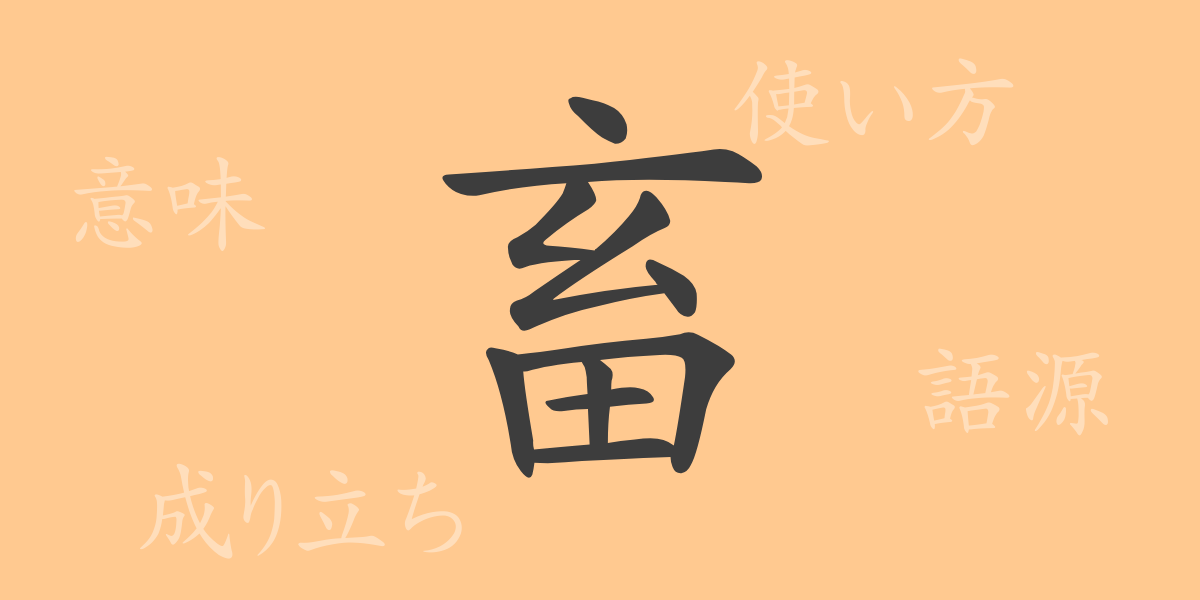The richness of the Japanese language is embodied in each of its kanji characters, each with a profound history and meaning. In this article, we will delve into the kanji “畜(ちく),” commonly seen in everyday life, exploring its origins, contemporary usage, and the idioms and proverbs associated with it. By understanding the depth of a single kanji, we aim to deepen our grasp of the Japanese language.
Origins of “畜(ちく)”
The kanji “畜(ちく)” originated from ancient China and is derived from pictographs. Initially representing a fence enclosing livestock, it symbolized the act of keeping domestic animals. As the culture of raising livestock evolved, “畜(ちく)” came to denote not only livestock but also the act of nurturing, acquiring additional meanings over time. This character was eventually adopted into Japanese, where it developed unique usages and meanings.
Meaning and Usage of “畜(ちく)”
In modern Japanese, “畜(ちく)” primarily refers to livestock. It also extends to meanings like ‘to nurture’ or ‘to accumulate.’ However, it can be used pejoratively to describe treating people inhumanely, a usage that is generally discouraged.
Readings, Stroke Count, and Radical of “畜(ちく)”
Understanding the readings and elements of the kanji “畜(ちく)” can further enhance our comprehension.
- Readings: On’yomi “チク” (chiku), no specific Kun’yomi.
- Stroke count: 10 strokes.
- Radical: “田” (ta) meaning field.
Idioms, Phrases, and Proverbs Using “畜(ちく)”
Various idioms, phrases, and proverbs include the kanji “畜(ちく),” reflecting its versatility in Japanese.
- 家畜(かちく) – Literally animals raised in a home, referring to domestic animals.
- 畜生(ちくしょう) – Originally meaning livestock, but colloquially used to express displeasure towards someone (usage discouraged).
- 畜産(ちくさん) – Refers to the livestock industry.
- 蓄積(ちくせき) – Means accumulation or storage of things.
Summary on “畜(ちく)”
Through this article, we’ve explored the various meanings and usages of the kanji “畜(ちく).” By understanding not just the character but also its historical and cultural background, we can enrich our understanding of language. This exploration is crucial not only for learners of Japanese but also for native speakers, as understanding the meanings embedded in each kanji is key to mastering the language’s nuances. The depth of the Japanese language is re-discovered through the kanji “畜(ちく).”

























